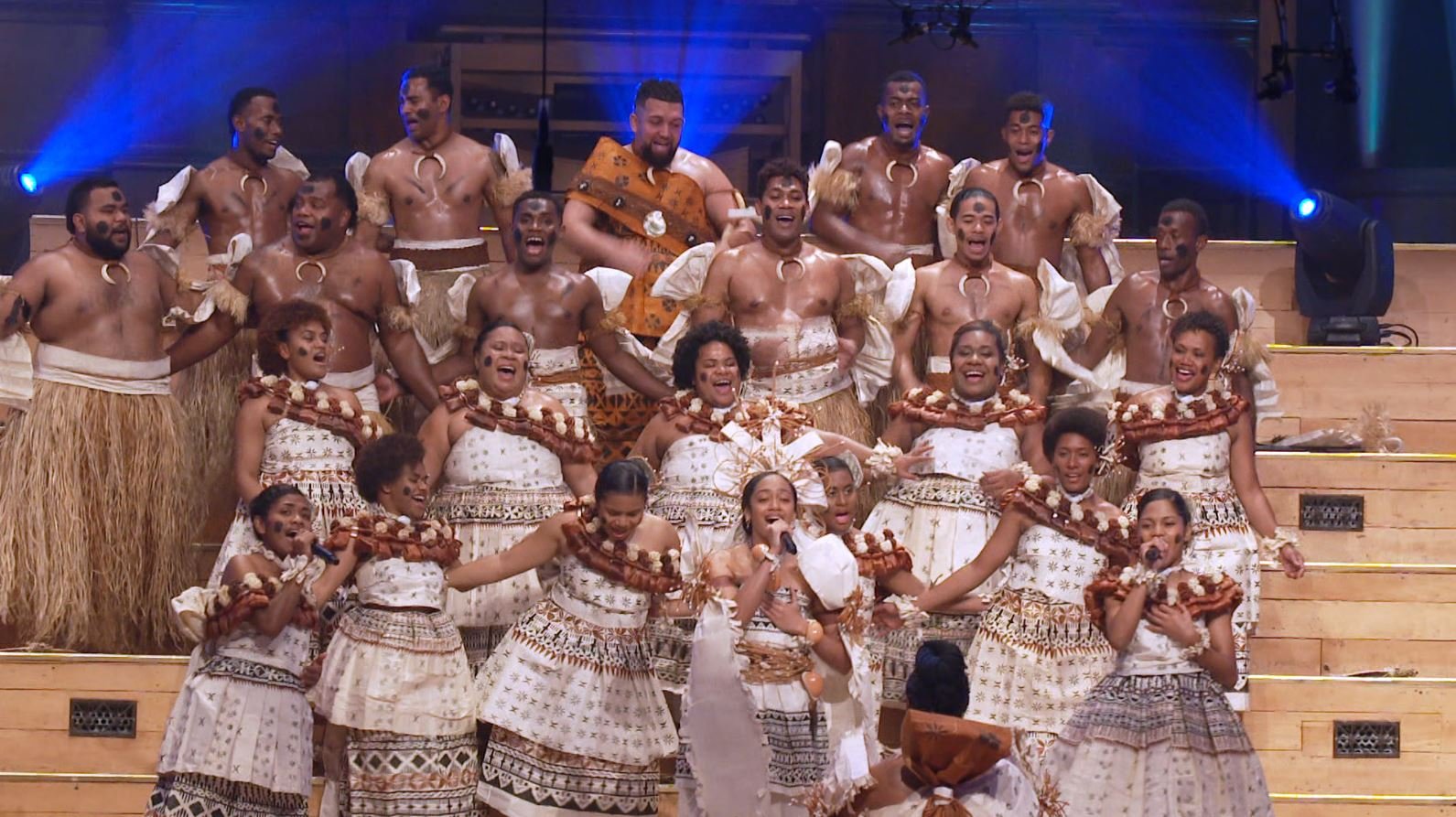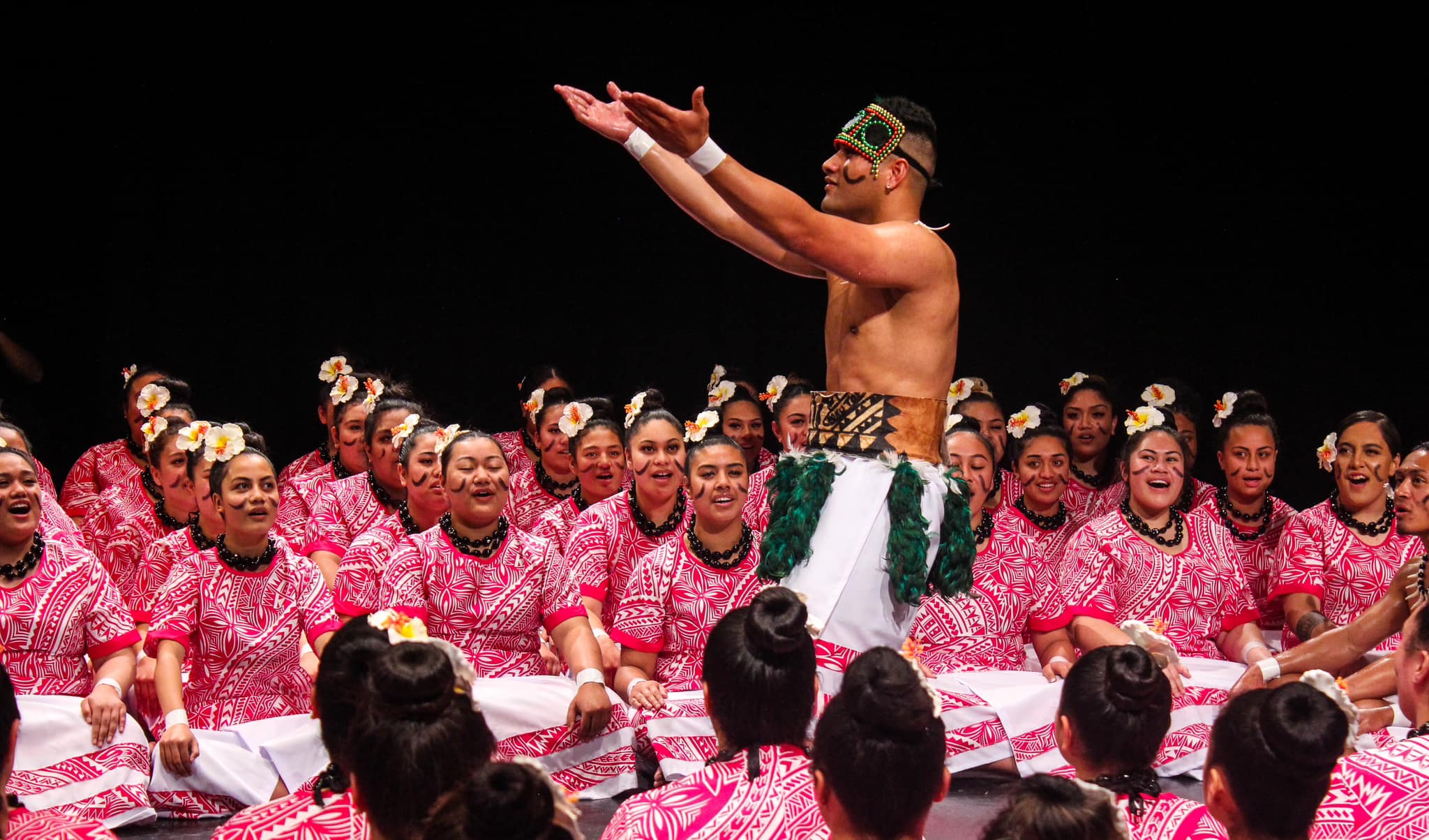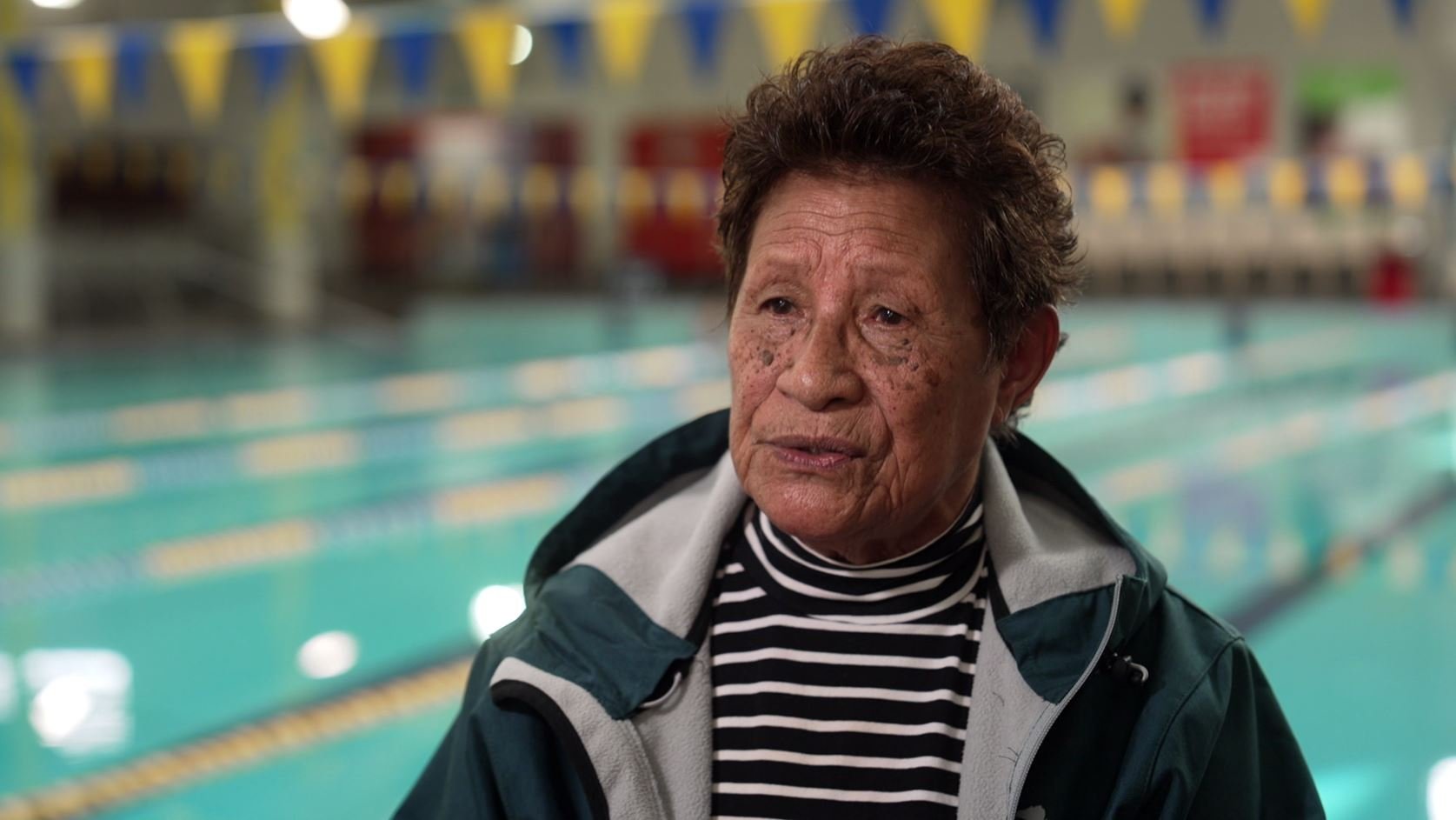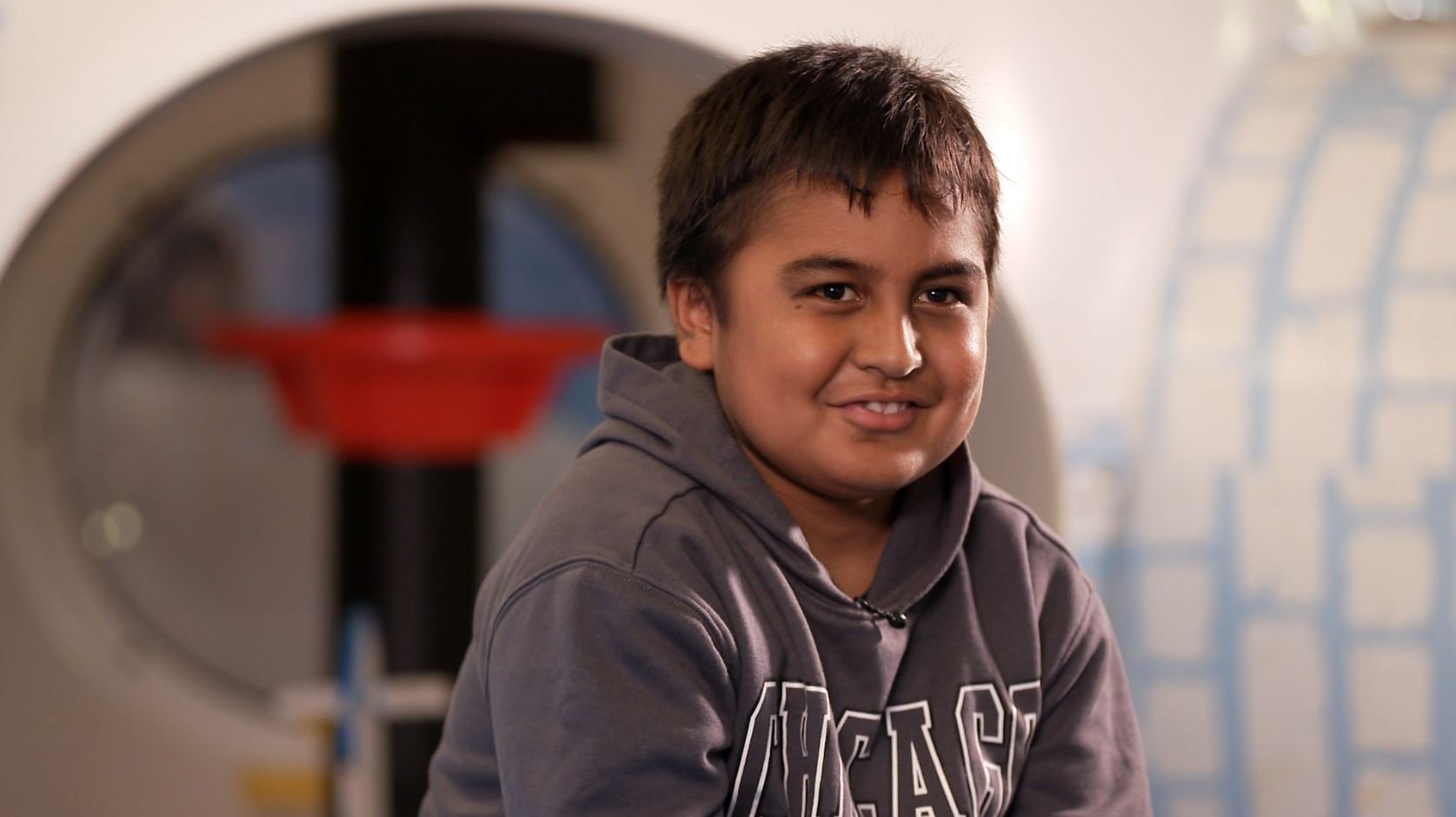By Michelle Curran
Wood carving is not just a craft for Mani Lavaka, it is an opportunity to share the histories and cultures of Polynesia. Mani is the fourth generation of Tongan carvers and is carrying on the traditional craft his father Tevita passed onto him as a young boy growing up in Niutoua, Tongatapu. Now based in Holualoa on Hawai’i Island, Mani continues to carve, influenced by styles from around Polynesia, while aspiring to educate visitors to Hawai’i on the Pacific region and the rich cultures within it.
Artist and carver Mani Lavaka stops and reflects for a minute when asked what he would do if he did not carve.
“I don’t know anything else – I grew up doing it and have carved my whole life, this is it for me.”
Fortunately, the 35-year-old loves what he does – a skill he picked up from watching his father and well-known carver Tevita Lavaka, who learnt the craft from his father and grandfather.
“Dad never forced it on my two brothers or I, and he didn’t really teach us,” Mani says.
“We just messed around out there while Dad worked and just from watching him do his thing, we started doing fine detail carving, then bigger structures like tiki carving – it came fairly naturally and I knew I would always be a carver.”
Mani is the second youngest in his family, and has two brothers who both carve today, and two sisters, who never learnt the craft.
“Traditionally it is done by males – although I know a few Tongan women who carve nowadays.
“I still see it as a thing for men to do – it’s our culture,” Mani says.
In Tonga, Mani progressed to where he was helping his father carve objects which were then sent to destinations such as Hawai’i to people who fell in love with the wooden art pieces made from kasia, fau and siale hard woods.
When Mani was 15, his family moved to Maui, where they set up a street stall, which still exists, to sell artwork made mainly from the coveted koa wood, monkeypod and mango trees.
“People were really keen to buy our stuff, and this craft has supported my family for a long time.”
It was at that very stall in Maui, where Mani met his future wife, Trish.
Trish says she saw him selling his impressive carvings and realised they went to the same church, The Church of Jesus Christ of Latter Day Saints.
The couple married in 2010 and moved to Hawai’i Island, and now have three children – Jaron, 7, Jordan, 6, and new baby Priscilla.
Mani is hopeful one of his two sons will take up the craft, but he is taking the same approach as his father and not pressuring his sons to take up carving.
“I believe everyone needs to love what they do in life, so I am letting them choose – they are starting to mess around with wood and tools, so we will see.”
In Hawai’i, demand for Mani’s work is continuously increasing as more tourists and residents on Hawai’i Island are exposed to his beautifully unique carvings.
“I let the piece of wood decide what I will make from it – sometimes it is clear to me within a minute what I will make, and other times it can take a year,” he says.
Honu, whales and tiki are among his favourite objects to carve.
“Turtles are so relaxed, and I think they remind us to slow down and enjoy life and the moment.”
Whales have always been part of Mani’s life – as a youngster he watched the Southern Humpbacks make their way around Tonga on their migration route; and now watching the Northern Humpbacks navigate Hawaiian waters back to Alaska.
It was not until he moved to Hawai’i where he began to truly understand the meaning behind the objects he was carving, such as Hikule’o – the pre-Christian goddess who ruled Tonga and had a major influence on Tongan society.
“I would speak to my friend who is a lecturer in anthropology and learnt about the Tongan culture as well as others throughout Polynesia – now I am not just carving but telling our Polynesian history through my pieces.”
Last year, Mani and Trish connected with fellow Church members Adam and Leiah Layton, owners of Aloha Adventure Farms.
After much discussion, the two couples dreamed up a grand plan to create an adventure through Polynesia, where tourists could learn about various cultures, and where Mani could share his craft through carving tours and give access to his art for all to own.
“The Layton’s attained the land in Holualoa and felt compelled to help bring this experience to all who visited the islands.
“Their dream is to give more opportunities for all who come, to explore Polynesia in a fun way – a place where tourists could actually see what Polynesia was like back in the day,” Mani says.
Together, they came up with the idea of Aloha Adventure Farms, offering ATV tours around the farm covered in coffee, Ohia and Eucalypt trees, as well as a Polynesian cultural experience and visit to Tonga, Fiji, Samoa and Hawai’i villages.
“We opened in December 2019 and were building up our popularity when COVID-19 hit, and we closed in March 2020 – we have recently opened back up and are looking forward to hosting tourists and locals again.”
Guests experience something unique to each of the Polynesian islands – in Samoa, guests can witness and try husking a coconut and learn about the rich culture of the Samoan people, in Hawai’i, they can taste poi and kalo and try hula; in Fiji, Throw a spear to see if you could settle a feud in the village, or use a traditional war club to crush a pineapple; and in Tonga, play drums and learn of Tonga’s existing monarchy.
Mani provides carving lessons on a Tiki Carving tour, using only a chisel and wooden mallet an ancient art that has long been forgotten.
The Aloha Adventure Farm team have big hopes for the project and believe it offers plenty of fun as well as education and awareness to its visitors.
For Mani, it is a chance to connect with people and to teach carving, two things he enjoys.
“It is a great thing to meet people from around the world and provide guidance on something they make with their own hands.
“It is also cool to see some peoples’ faces and their surprise when they can immortalize a piece of wood.”
Wood carving has always flowed through Mani’s blood, and it will continue to do so for years to come.
















